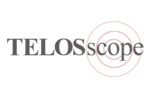By Peter Brandt · Wednesday, April 28, 2021 This is a more extensive version of an essay by Peter Brandt that appeared in Neue Gesellschaft/Frankfurter Hefte in March 2021. Brandt comments on identity politics here. Translated by Russell A. Berman, with comments here.
In the wake of the Black Lives Matter movement in the United States and the United Kingdom, growing numbers of statues of historical figures have been toppled, beheaded, or turned upside down. It has been a matter primarily of figures charged with participation in the extermination, oppression, and enslavement of non-white ethnic groups, such as the famous generals of the Confederacy during the American Civil War of 1861–65. The matter gets complicated because not a few of these targets of symbolic attacks or executions embody quite different qualities. Several of the American founding fathers, the first constitutional state, were slaveowners, for example, the primary author of the Declaration of Independence of 1776 and later third president of the United States, Thomas Jefferson, a figure of the Enlightenment and a wide-ranging intellectual. Although never a rigorous defender of slavery, he viewed blacks—in contrast to Native Americans—as inferior.
Continue reading →
By Peter Brandt · Wednesday, April 28, 2021 The following blog post originally appeared at Blog politische Ökonomie. Peter Brandt is commenting on the controversy surrounding an essay by Wolfgang Thierse, translated here. See the related position paper here and a separate article by Brandt here. Translated by Russell A. Berman, with comments here.
During the past few weeks the debate over identity politics and viewpoint diversity in Germany has been unfolding. The starting point was an article in the Frankfurter Allgemeine by Wolfgang Thierse, not known for eccentric positions, concerning the conduct of the debate around the themes of racism, postcolonialism, and gender.
In his opinion piece, Thierse criticizes the claim by sexual and other minorities to define their own collective identity (hence “identity politics”), and what is right and tolerable or intolerable for them, rather than engaging in an open and controversial debate. The accusation that something is hurtful therefore, Thierse argues, often displaces an argumentative response.
Continue reading →
By Position Paper · Wednesday, April 28, 2021 The following position paper circulated in Germany in late March here. It is part of a wider discussion of identity politics, especially the opinion piece by Wolfgang Thierse, translated in TelosScope here. See also the comments by one of the signators, Peter Brandt, here and here, and comments by the translator, Russell A. Berman, here.
We, the undersigned of this position paper, understand ourselves to be critical, progressive, open-minded, and ecologically oriented. We support deep ecological and social changes in our society. However we want to do this without identitarian fundamentalism! With this position paper we want to . . .
Continue reading →
By Klaus Boldt · Monday, April 12, 2021 
The following interview appeared in the Welt am Sonntag. This translation is published here with permission. Wolfgang Reitzle is one of Germany’s leading business executives. Translated by Russell A. Berman, with comments here.
Welt am Sonntag: Mr. Reitzle, the corona crisis robbed many Germans of their illusions about this republic. They don’t recognize their country anymore. They used to think of it as progressive, organized, digitalized, and well led. Was that image of modern Germany just a fantasy?
Wolfgang Reitzle: There have been plenty of signs of a discrepancy in Germany between appearance and reality: despite a defense budget of 47 billion euros, our guns can’t shoot, our tanks can’t roll, and our airplanes can’t fly—this doesn’t seem to bother anyone here, but other countries have taken notice. Our inability to build an airport for our capital city astonished the world.
Continue reading →
By Russell A. Berman · Monday, April 12, 2021 Wolfgang Reitzle is one of Germany’s premiere business executives, and Klaus Boldt, part of the editorial leadership of Die Welt, one of the foremost business journalists. The wide-ranging interview here points to the multiple dimensions of the problems facing Germany at the end of the Angela Merkel era. The general elections in late September are sure to lead to a new coalition government in Berlin—and a new chancellor—who will face all the problems that Reitzle diagnoses, with the possible exception of the pandemic, hopefully over by the fall, even in Europe. While the coronavirus’s economic, social, and political consequences are however sure to linger on, it figures here primarily as an example of massive government failure and the toxic mixture of bureaucracy, ideology, and incompetence that Reitzle denounces and that leads him to call Berlin “a failed state.”
Those are harsh words from a prominent leader of the German business community, especially when one recalls how in the U.S. political discussion in recent years Germany has been repeatedly held up as the better alternative to the Trump administration. Not long ago the myth of Angela Merkel as the new leader of the free world circulated through the press. That once-glowing imagery has now vanished in the face of the catastrophes of the German and the EU corona response, and the prospect of continued slow economic growth, fraying infrastructure, and insufficient support for technological innovation in the country where one would least expect it. Reitzle helps us understand why.
Continue reading →
By Telos Press · Thursday, April 8, 2021  On The Caravan Podcast at the Hoover Institution, Russell Berman talks with political scientist Matthias Küntzel about the potential return of the United States to the Iran Deal, Germany’s long-standing special relationship with Iran, anti-Americanism in Europe, and the anti-Semitism of the Iranian regime. Listen to the podcast here. Küntzel is the author of Germany and Iran: From the Aryan Axis to the Nuclear Threshold (Telos Press, 2014), which examines why the history of the special relationship between Germany and Iran is critical to understanding the ongoing controversy over Iran’s nuclear program. Both Germany and Iran and Küntzel’s earlier book Jihad and Jew-Hatred: Islamism, Nazism, and the Roots of 9/11 are available in our online store for 25% off the list price. Küntzel’s articles for Telos are also available at our online archive. On The Caravan Podcast at the Hoover Institution, Russell Berman talks with political scientist Matthias Küntzel about the potential return of the United States to the Iran Deal, Germany’s long-standing special relationship with Iran, anti-Americanism in Europe, and the anti-Semitism of the Iranian regime. Listen to the podcast here. Küntzel is the author of Germany and Iran: From the Aryan Axis to the Nuclear Threshold (Telos Press, 2014), which examines why the history of the special relationship between Germany and Iran is critical to understanding the ongoing controversy over Iran’s nuclear program. Both Germany and Iran and Küntzel’s earlier book Jihad and Jew-Hatred: Islamism, Nazism, and the Roots of 9/11 are available in our online store for 25% off the list price. Küntzel’s articles for Telos are also available at our online archive.
Continue reading →
|
|




